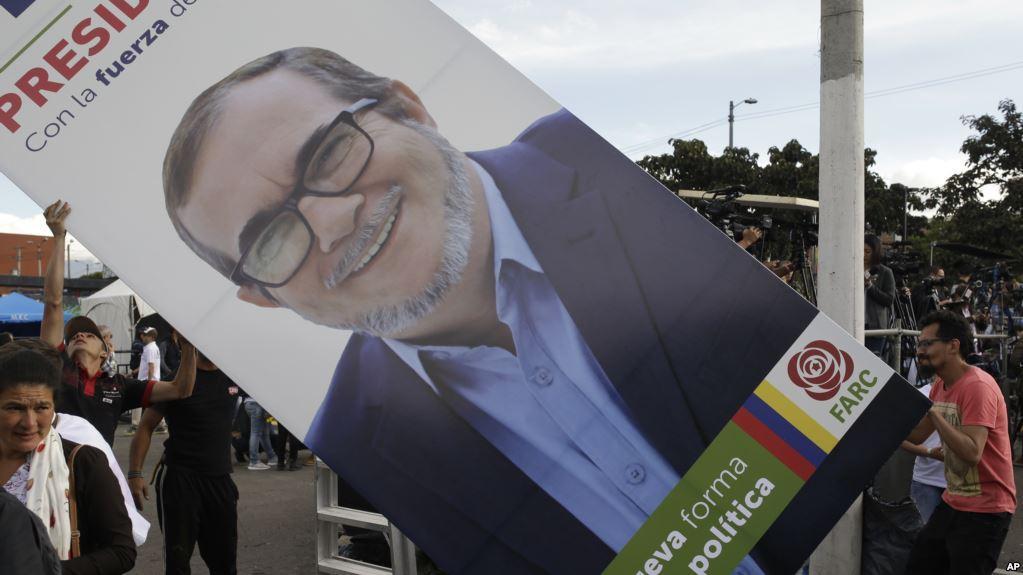
Conservative candidate Ivan Duque won the first round of Colombia’s presidential election but fell short of the 50 percent threshold needed to avoid a runoff next month.
The 41-year-old senator will face former guerrilla Gustavo Petro on June 17, the first leftist candidate to contest a runoff in Colombia.
Duque won 39.2 percent of the votes, compared to Petro’s 25 percent, in the May 27 poll which showed deep divisions over a peace deal with former rebel movement FARC.
It was the first presidential election in half a century free of the threat of the FARC, however Duque has campaigned strongly on a pledge to rewrite a peace agreement with the group.
Polling was “totally normal,” said electoral authority chairman Juan Carlos Galindo. Turnout was a higher-than-usual 53.2 percent in a country traditionally plagued by voter apathy. The peaceful election was an achievement praised by outgoing President Juan Manuel Santos after casting his ballot in Bogota.
Ironically, the peace Santos made with the FARC has opened sharp divisions, reflected in the two candidates to succeed him.
Duque has vowed to rewrite an accord he sees as too lenient on a group that waged a decades-long war of terror in Colombia before transforming itself into a political party.
Duque’s pledges to defend private enterprise and introduce tax cuts also won him support.
Duque called for a “Colombia where peace coincides with justice” after the results were announced, reiterating his desire to revise - without “shredding” - the pact with FARC.
Petro, a former member of the disbanded M-19 rebel group, defied expectations in a country where presidential elections have traditionally been the domain of the right.
His total of more than 4.8 million votes is almost double the previous best showing for the left in a presidential election, in 2006.
“It’s obviously going to be very polarized in the second round,” said analyst Andres Macais, with both sides scrambling to form alliances with defeated candidates.
Conservatives backing Duque have a majority in the Congress after sweeping legislative elections in March.
Leftist candidates Sergio Fajardo, a former Medellin mayor who polled 23.7 percent of the vote, and peace negotiator Humberto De la Calle, have previously refused to ally with Petro.
Petro expressed confidence after his second-place finish. “You can be certain that we will win, that the history of Colombia can be changed,” he told supporters.
The 58-year-old rallied many Colombians with his campaign speeches against inequality and corruption.
“I voted for Petro... who has helped the poor people,” said domestic worker Gladys Cortes, 60.
Analysts said turnout could be a key factor in the second round.
“There is an increase in participation, but abstention is still high, we will have to see if it is still possible to move that absentee vote towards Petro. The second round is going to be very close,” said analyst Medofilo Medina.